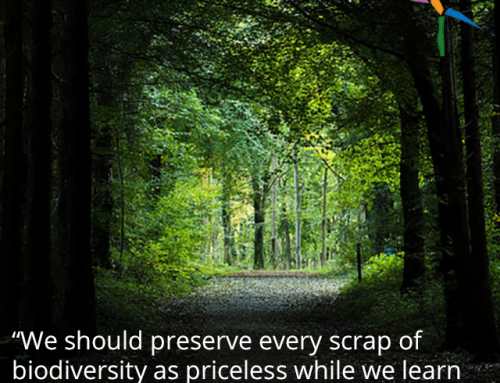Every once in a while at Postconsumers, something seems so outrageous to us that we feel like we have no option but to write a blog entry about it and find out if it seems equally outrageous to everybody else. At Postconsumers, we understand that advocating and educating about environmentalism goes hand in hand with advocating and educating about postconsumerism. While the mental and psychological impacts of consumer addiction aren’t directly related to environmentalism, the physical symptoms of mass consumerism are directly environmental. Because the two concepts are so closely linked, we like to provide information about both of them. Today, we’ll be talking about rainwater collection. This may seem like an easy way to be conscious about water conservation, but as you’ll soon see, it’s anything but.
Just to Clarify, We’ll Answer “What is Rainwater Collection?”
We don’t want to just assume that you’re already familiar with what rainwater collection is, but if you are feel free to skip ahead to the next paragraph. Rainwater collection is basically what it sounds like. Instead of, or in addition to, the municipal water that you use, you collect rainwater to generate your own water supply. Another common name for this practice, and one that’s becoming more common, is “rainwater harvesting.” Typically, you wouldn’t use rainwater that you collected for drinking or cooking purposes. It would more likely be used for activities like showers, flushing toilets, washing clothes or watering your garden.
There are many benefits to rainwater harvesting or collection, including reducing your bill, reducing your exposure to chemicals found in groundwater, reduction in the demand for groundwater that’s caused by an increasing population, and a reduction in soil erosion. Of course our favorite benefit of rainwater harvesting or collection is that it will make you intimately more familiar with what a limited commodity water is, which will make you wiser about conserving it.
It seems as though most everybody should be collecting rainwater, right? In fact, there are entire systems that you can buy to help you do it if you’re opposed to just sticking a barrel outside. But like most things, it’s not as simple as it seems.
Believe It Or Not, People Think That There Are Places Where Rainwater Collection is Illegal
This is the part that makes us crazy! We like to think of people as thoughtful and willing to find out the truth about rumors. But as with many things that is not the case. Because of two high profile legal battles, there has evolved something of an urban myth that collecting rainwater is illegal in as many as eleven states. In the recent past, both an Oregon resident and a Colorado resident have been arrested and jailed for illegal rainwater collection. This led to an uproar over the outrage that collecting one of Mother Nature’s basic provisions could be illegal. But that’s not actually the truth.
What is true is that in Colorado, Oregon and currently as many as nine other states there are laws that govern how rainwater can be harvested. In fact, in some of those states there are even laws that encourage rainwater collection with tax incentives when it’s done properly. What the laws are designed to do is to ensure that by collecting rainwater the individual isn’t harming the community’s ability as a whole to access water. For example, in the famous case in Oregon, the man in question was using dams to channel water away from its natural path and therefore limiting the water supply of the community as a whole.
Why Does This Matter?
This topic actually matters deeply because peak water is a very real thing. As one of our favorite water conservation quotes says, “All the water that will ever be, is.” As the population continues to grow and the need for water continues to expand, having civilized rules that govern how and where water can be used will be important. Those laws will ultimately protect all of us from a small group of people grabbing even more power by controlling the water. Of course, it’s imperative on us to protect those laws.
It’s easy to get angry over a perceived injustice, but the laws concerning water collection are actually well thought out and important. Rather than see how loudly we can yell about them, we’d be better served to ensure they have a strong infrastructure across the nation.
And, as always, it’s a great idea to educate yourself about water conservation. We’ve compiled all of our favorite resources in one water conservation information hub.
Did we miss a drop (or a bucket) of information about rainwater collection? Tell us about it on the social media channels below.
Facebook | Twitter | Instagram | Tumblr | Pinterest | Google+ | Medium
Photo Credit: Marcin Bajer via Flickr





